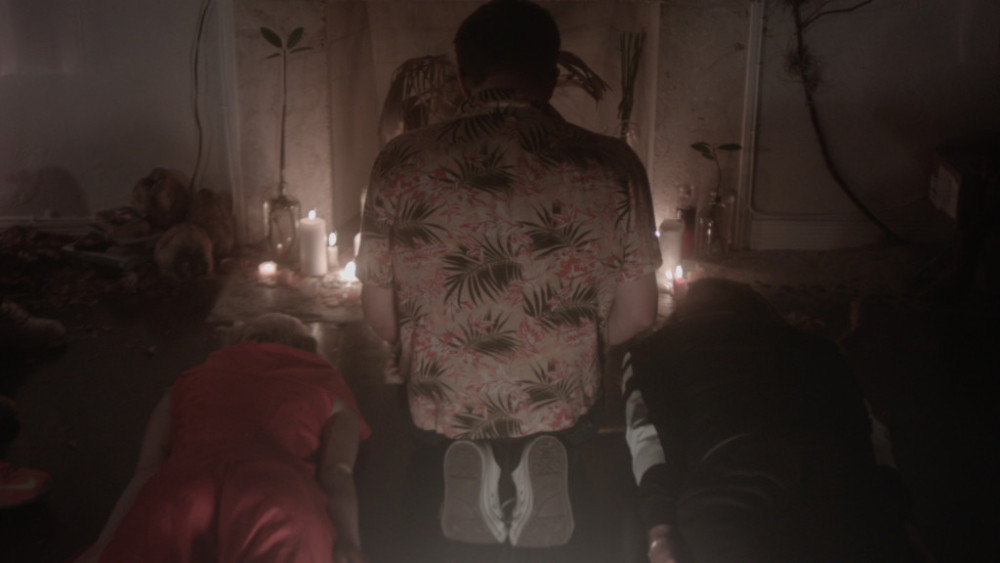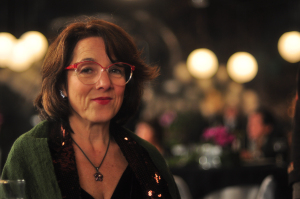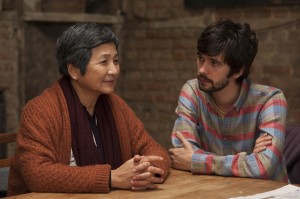
Throughout Hearts of Palm, the film’s narrator sorrowfully repeats a phrase: El la amaba y ella lo amaba. He loved her and she loved him. Its repetition works beautifully to emphasize what we already know from practically the moment it starts: filmmaker Monica Peña is telling a story about a stagnant relationship that, slowly but surely, is falling to pieces.
Now this premise may sound like something bound for typical exploration, but this is anything but your typical film. Hearts of Palm is a work that many will find challenging in its execution, notably the decidedly long, and often quiet, takes that place emphasis on both the lingering romance between these characters and the suffocating nature of trying to deal with a relationship falling apart at the seams.
More than that though, Peña is undoubtedly a filmmaker interested in experimenting. This results in stylistic decisions that only benefit the film and this isn’t solely about the long takes or the riveting surreal sequence that features heavily in the back half. It’s about the strangely entrancing performances from leads Megan Galizia and Brad Lovett (as well as Julian Yuri Rodriguez in a decidedly creepy role), the score by Lovett that one forgets in all the silence until it appears again to delightfully surprise, and even the mentions of Jean-Paul Sartre and Simone de Beauvoir interspersed throughout the film.
Hearts of Palm’s most fascinating quality though is the brilliant use of on-screen text about the production as a complementary commentary to what’s unfolding, something eerily reminiscent of Mark Z. Danielewski’s novel House of Leaves, a similarly surreal work about a relationship in turmoil. Jean-Luc Godard, a filmmaker Peña directly mentions herself, is a great point-of-reference for how the film experiments with it. While she brings up the way he (and many other male filmmakers) cast his lover, Anna Karina, in his films, it’s the way the text plays both in contrast and in hand with images on screen and the words being said that calls his work to mind.
Then there’s the chapter splits, the intimacy of the handheld camerawork — J.L. Rubiera working wonders with the cinematography — and the constant intertwining of mysticism and nature into the lives of these lovers, all of which could easily call to mind Lars von Trier’s Antichrist, though Hearts of Palm has no interest in being as tiresomely confrontational. In fact, it’s overwhelmingly sincere, to the point where the on-screen text often serves as an admittance of things some might perceive as flaws: “I wrote a monologue. It’s not very good.”
That earnestness — “I’m just a heartbroken girl from Miami” — and the quality of the filmmaking come together to make Hearts of Palm a product that’s genuinely intriguing to watch. It’s a further dive into the kind of art that a city as rich with Latin culture and mysticism as Miami is should be racing to explore. Yes, it’s weird, and yes, it’s personal, and that’s exactly what makes it so damn good.
—
Directed by Monica Peña; written by Monica Peña, Lucila Garcia de Onrubia, Megan Galizia & Brad Lovett; starring Megan Galizia, Brad Lovett, Eloisa Garcia, Julian Yuri Rodriguez; 71 minutes.
Hearts of Palm is showing at Regal South Beach on Wednesday, March 9th at 9:30 p.m. and Sunday, March 13th at 4:30 p.m. Tickets are $13.
A capsulized version of this review appeared on Miami New Times.



 Derek
Derek
 Isabelle
Isabelle